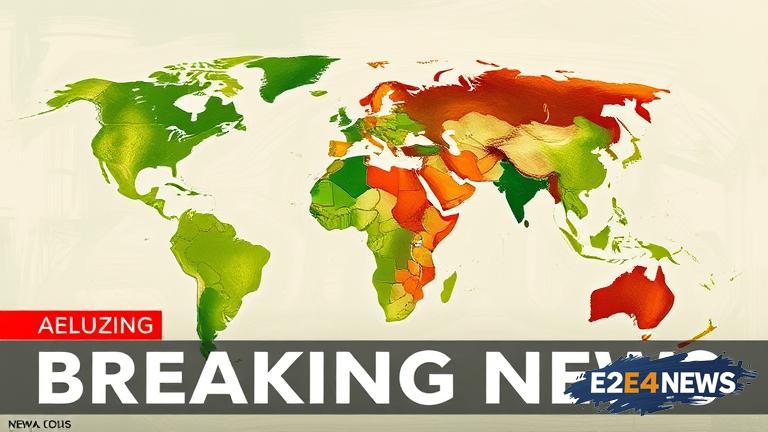Climate change is having a profound impact on global food systems, with rising temperatures and extreme weather events affecting food production and security worldwide. The consequences of climate change are far-reaching, from crop failures and reduced yields to changes in the distribution and prevalence of pests and diseases. In recent years, the world has witnessed an increase in extreme weather events such as droughts, floods, and heatwaves, which have devastating effects on agricultural productivity. The effects of climate change on food systems are not limited to production, as it also affects the availability, access, and utilization of food. Climate change is altering the growing seasons, disrupting the delicate balance of ecosystems, and threatening the livelihoods of farmers and rural communities. The Intergovernmental Panel on Climate Change (IPCC) has warned that climate change could lead to a decline in global food production, with potentially catastrophic consequences for food security. The IPCC report highlights the need for urgent action to reduce greenhouse gas emissions and mitigate the effects of climate change on food systems. One of the most significant impacts of climate change on food systems is the loss of biodiversity, as changing weather patterns and rising temperatures alter the distribution and abundance of plant and animal species. This loss of biodiversity can have far-reaching consequences, including the loss of genetic material, reduced crop yields, and decreased resilience to pests and diseases. Climate change is also affecting the nutritional quality of food, as changing weather patterns and rising temperatures alter the nutrient content of crops. Furthermore, climate change is exacerbating existing social and economic inequalities, as vulnerable populations such as the poor, women, and children are disproportionately affected by food insecurity. The effects of climate change on food systems are not limited to developing countries, as developed countries are also experiencing the impacts of climate change on food production and security. In the United States, for example, climate change is affecting the production of crops such as corn and soybeans, while in Europe, climate change is altering the distribution of pests and diseases that affect agricultural productivity. The international community has recognized the need for urgent action to address the impacts of climate change on food systems, with the United Nations’ Sustainable Development Goals (SDGs) including a goal to end hunger and malnutrition by 2030. To achieve this goal, governments, international organizations, and civil society must work together to develop and implement effective strategies to mitigate the effects of climate change on food systems. This includes investing in climate-resilient agriculture, improving access to climate information and early warning systems, and supporting small-scale farmers and rural communities. Additionally, there is a need to promote sustainable consumption patterns, reduce food waste, and support research and development of new technologies and practices that can help to mitigate the effects of climate change on food systems. The private sector also has a critical role to play in addressing the impacts of climate change on food systems, as companies can invest in sustainable agriculture practices, reduce their carbon footprint, and support small-scale farmers and rural communities. Ultimately, addressing the impacts of climate change on food systems requires a coordinated and collective effort from governments, international organizations, civil society, and the private sector. By working together, we can reduce the risks associated with climate change, promote sustainable food systems, and ensure that everyone has access to nutritious and sustainable food. The clock is ticking, and urgent action is needed to address the impacts of climate change on food systems. The future of food security depends on our ability to work together to mitigate the effects of climate change and promote sustainable food systems. Climate change is a global problem that requires a global response, and it is essential that we take action now to protect the world’s food systems from the impacts of climate change. The consequences of inaction will be severe, and it is our responsibility to ensure that future generations have access to nutritious and sustainable food. In conclusion, climate change is having a profound impact on global food systems, and urgent action is needed to mitigate its effects. We must work together to promote sustainable food systems, reduce greenhouse gas emissions, and ensure that everyone has access to nutritious and sustainable food.
